- Home
- Patrick Robinson
The Lion of Sabray Page 11
The Lion of Sabray Read online
Page 11
The villagers then formed a kind of battlefield stretcher party, returned to the house, and tried unsuccessfully to communicate to Marcus what was going on. He was utterly confused, but he did not resist being hauled out of bed and lifted outside. Sarawar held the lantern. It was about two o’clock in the morning.
They were headed to the most secure place in the village: a cave where they stored stolen Russian weaponry, high explosives, and ammunition. The strength of the cave was its secrecy, shielded as it was by thick bushes and set back into the trees. You could search for a hundred years and never find it. It was one of Sabray’s assets, a place unknown to outsiders; a refuge for villagers who had something to hide.
They made slow progress down the mountain, half carrying, half shouldering the huge Navy SEAL, who was nothing like the deadweight he had been when they first brought him in.
Marcus was regaining his strength. With help, he could stand and nearly take a few steps. Trouble was, he was so much bigger than everyone else, and the journey was plagued by this physical imbalance. However, they managed to help him down to the banks of the local river, and this required a major decision. They had to get him across, and the riverbed was uneven and a bit slippery beneath the rushing mountain torrent of water.
But Marcus was Gulab’s “guest,” and he elected to carry him alone. He crouched, and they set Marcus in position. Gulab stood up, bearing the weight, and walked into the flowing stream. The American was one hell of a burden, but the Lion braced himself, gritted his teeth, and hauled him like a decorated elephant carrying an Indian rajah on his throne.
Step by step, he waded through the stream, knowing that if he stopped, they’d both end up in the water. He never faltered, just kept heaving, gripping Marcus’s massive legs with two hands.
“I just knew he was trying not to laugh,” Gulab says in retrospect. “It seemed like a long way, farther than it had ever been before, but we made it. And somehow I climbed the bank, and my troops rushed forward to help once we were on dry land.
“I had never before been required to hoist a weight like that. Not even in the timber-felling country. And I was certain I never would again. At least, not for a couple of days, when I was near certain I’d have to carry him back.
“He knew what I’d done. And he offered me a handshake on that riverbank. We couldn’t speak, but he meant this gesture of his gratitude, and I’ve always remembered it.
“This warm note of friendship was perhaps our first, between two new friends, separated by the isolation of language, but by nothing else. Little did either of us realize it was a bond of great trust which would last for many, many years.”
The gradient up to the cave’s entrance was steep. But they pushed and hauled the giant SEAL until finally they stood at the entrance. This was no hotel, but they did try to clear some of the small rocks and fix a place for Marcus to lie down, inside the cave and away from the entrance. In their haste to exit the village house, they had brought no food or water. But they found an old Pepsi bottle, and Gulab went down to the river to fill it for him.
By now, it was four o’clock in the morning, not yet light and still moonless. The team members began to disperse, making their way through the dark and back down to the river. Gulab stayed awhile with Marcus until he fell asleep, and then he crept out of the cave and positioned himself to the left of the entrance. He stood guard there until dawn, his AK-47 primed and loaded.
“The thing was,” he says, “I did not trust those Taliban for one split second, and neither did I know whether they’d observed our evacuation party moving through the night and across the river. If they had, I was certain they’d come calling very soon. And so I just sat there, fulfilling my obligation to Allah. One sight of a Taliban advance on our cave, I’d open fire. And I was trained long ago not to press the trigger until I couldn’t miss.
“My mission on this dark night had its own perimeters. Once stationed at the entrance to the cave, I needed to stay there. Because someone could be watching. It was entirely feasible the Taliban may have spotted me clambering into the bushes, and I dared not desert my post in case they decided to rush into my area and then execute Marcus. So I just stayed until long after dawn.
“Soon after 0800, the goat-herders arrived, climbing up the hill to pastures which began above the cave. I’m sure the tinkling bells around the animals’ necks awakened Marcus, but I still did not want to leave the entrance. I’d wait for Sarawar and the rest of my team to arrive later in the morning, at which point I’d post a new guard, who would be a member of my family.
“I actually chose my brother Haji Nazer Gul, the fearless mujahideen warrior in his day. He was whip thin, abnormally strong, and afraid of no one. By trade, he was a mountain machine gunner like me. Only to such a man would I entrust the life of Marcus. Nazer is a devout Islamist, and one of the few people to whom I had confided my vision of Allah’s bright light around the injured American.”
The sun was quite high when Sarawar finally arrived. He came with several friends, and they brought fresh dressings for Marcus’s wounds and freshly baked bread and water. And while they worked to make him feel better, Gulab walked home, down the mountain and over the river. He was tired by now, and ahead of him was another long night. He remembers:
With Haji Nazer Gul on duty outside the cave, I was confident our guest would be safe. And by this time, all of my friends and allies in the village knew about the clandestine American in my care. I had spoken sternly to many of them, explaining how certain I was that the American’s life was important to Allah.
There was nowhere in the Koran which stated Pashtunwali applied only to those of the Muslim faith. Certainly there was nothing to suggest that hospitality be withheld from infidels. In fact, it was quite the opposite. This was a matter of right and wrong, and it was up to all of us to make sure the commands of Allah were strictly obeyed.
My words were accepted by the goat-herders, and they certainly knew of the Sabray cave. They walked past it often and may have seen the armed guard outside. But they uttered not one sentence to the informers. In fact, I gave serious consideration to shooting all four of the Sabray village Taliban supporters but decided instead to bide my time.
Haji Nazer stood guard all day and left only after dark. By then, I’d posted one of my sons at the cave entrance, while I made arrangements for a new evacuation and to establish a different hiding place for Marcus.
It was July 1 now, and in company with another of my sons, plus a village senior man, Norzamund, we made our way back to the cave, crossing the river silently, always alert for activity on the Taliban mountain encampment. This was a quiet night, and we reached Marcus at around midnight.
I have to say, he was very low. I actually thought he’d been crying, and I noticed he’d picked up a piece of flint and scratched some English words on the rock wall of his Afghan “prison.” I had one of my boys copy it down, but I don’t think I ever understood what it meant: “God will give me justice.”
A few more hours went by before the Sabray team returned and hauled Marcus up for the journey back to the village. It was still very dark—maybe four o’clock—and Marcus realized how badly the Taliban wanted to kill him. But he was just not tuned in to the knife-edge military rules that apply up there. When he flicked on the light of his watch, one of the guards nearly had a heart attack. With his very limited English, the man informed Marcus that if he really wanted to die right now—and get everyone else killed—he’d chosen a very reasonable way to achieve that. The Taliban would spot that pinpoint of light from four hundred yards.
At this stage, the Navy SEAL did not understand the concept of Pashtunwali and all of its ramifications, and certainly not the onerous obligations those ancient tribal laws represented. But he did have to confess disappointment in the efforts of the armed forces to locate him. He had heard US aircrafts overflying the area. But no one seemed anxious to find out what had happened to him.
It was not until he was left in
the cave that he began to suspect they’d given up on him. This was his lowest point by far. It was hell’s dark in there, and he was all alone, Gulab having failed to mention that he’d been on guard outside all night.
Marcus realized by this time that the village was completely surrounded by the Taliban army he’d fought against two days ago. He did not, however, realize he was responsible for 100 percent of this universal grief to the locals.
He now thought he was finished—that he’d been left to die. He was as near to desperate as he’d ever been, and on top of everything, the plastic bottle he had drank out of had made him sick.
The group reached a flat concrete ground outside a house that would be the American’s new temporary home. Gulab and Sarawar proceeded to bring a cot where their guest could rest, while the doctor changed the blood-soaked bandages. Gulab gave Marcus fresh water, which he hoped might cure the black-water fever or whatever it was that had poisoned him.
The American fell asleep instantly. His first visitor showed up around nine o’clock, and attempted to engage him in serious conversation. This proved slightly awkward, since he was only about eight years old and was trying to tell him that he had to become a Muslim like everyone else.
Marcus had no intention of offending him as the boy laid out very seriously the critical words to the prayer that signifies acceptance of the religion of Allah:
La La e La La—Muhammad de la su La La. Marcus was taken with the boy’s insistence that he participate in prayer, and he agreed to do it with him.
“At this point, I guess there was some kind of breakthrough,” Marcus reflects. “Because he charged out of the room yelling at the top of his lungs for every other kid to join him. When he came back, he was accompanied by about twenty of his buddies—hereinafter, I referred to them as ‘my kids.’ ”
And they were all in the room, jumping up and down and shouting, “Hello, Dr. Marcus! Hello, Dr. Marcus!”
Finally, Gulab showed up and tried unsuccessfully to restore order. He playfully explained to the American that his recitation of the prayer with the little boy meant that he was now a Muslim and would be expected to attend prayers at the village mosque.
- 5 -
SURRENDER THE AMERICAN OR DIE
In the following twenty-four hours, Marcus and Gulab became friends. The Afghani never left his side, and even when other guards were posted on duty inside the house, he remained with him. Gulab, along with the other villagers of Sabray, were embarrassed after the Taliban had broken in and hurt Marcus badly two nights before. It never should have happened, and the fault rested with everyone. The American should not have been left alone in the night hours.
As the senior officer in command, the blame rested on Gulab’s shoulders. And he took it to heart, because it had been a military mistake. Sabray was dealing with an army here and the survival of an American battlefield commander.
Two things made it much worse. First, Gulab was working under the direct orders of Allah; and second, he liked this tall Special Forces operator a great deal more than he cared for the rough, sneering gangsters who fought for Ahmad Shah.
That morning, they spent a lot of time trying to communicate with each other. Marcus wanted to know about Gulab’s wife and children, and how they were educated up here in the mountains. And while this may have required just a few moments for most people, it took a great deal longer when neither party understood one word the other was saying.
There was, of course, a funny side to it, and the American kept laughing at Gulab’s attempts to understand the size of the state of Texas, where his family was from. The Afghani fighter kept trying to ask if it was bigger than one of the local towns, Jalalabad. It took a while for him to grasp that it was bigger than all of Afghanistan.
There is camaraderie between warriors, and they quickly established their humor, and they both laughed easily. For Marcus, this was a huge effort, because he was still in bad pain and actually did not have much to laugh about at all, since they were surrounded by about three hundred hostile, armed tribesmen, every last one of them avowed and determined to shoot the American dead.
Similar to Marcus trying to pass himself off as a doctor, Gulab communicated to Marcus that he was the village policeman. However, Marcus had never thought that Gulab seemed much like a policeman—more like a hardened warrior. But that’s what he said, and the SEAL had little choice but to believe him.
Meanwhile, there was serious business to discuss: how they were going to get Marcus away from there. Patrols had been organized around the village. Under Gulab’s orders, they were to apprehend any Taliban troops they encountered. They all knew that Shah’s men would not dare open fire on the people of Sabray.
A couple of times a day, Gulab rounded up a few armed bodyguards, walked over to the Taliban encampment on the mountain, and tried to negotiate. But it was all hopeless.
Shah threatened Gulab, saying repeatedly, “You are going to die. Your wife is going to die, and your children, your little son, all are going to die. Maybe everyone in the village, if you do not hand over the American.”
Gulab stared straight into his eyes and told him firmly, “There are many of you, and I know you will kill my family. But I am a mujahideen commander, and I am not afraid of you. In death, I will take many of you with me. But I will never give up the American.”
He did not tell Shah that one principal reason was his assessment of what would follow if he were to cave to the terrorist’s demand. Everyone would know that Gulab had surrendered, and Shah would tell anyone left alive in Sabray, “Now where is your Lion? We took away your American; General Gulab, he is nothing.”
That was a humiliation Gulab could not abide, either in life or in death. For him, there was no decision. The American soldier, he hoped, would fight alongside him if necessary. And he had many reasons to believe they would be the finest two warriors on the battlefield.
Gulab was always comforted by the knowledge that Allah likes and approves of prideful men. And He had steered Marcus into the Islamic religion, welcomed him through His children. If they had to fight, they would do so with right on their side. Gulab was sure of that.
Ahmad Shah ended negotiations with a warning: “Mohammed Gulab, if you do not give him up, and the Americans come and bomb us and get him away from here, remember, you will still be in Sabray. We will always know what you have done. We will not forget. You and your family will die.”
Gulab glared at him and told him he was surprised he did not understand. “I will not give him up,” he said adamantly. “On this earth, I fear only Allah. Certainly not you.”
And with that, the Sabray negotiating party returned to the village, leaving the enemy in no doubt that if it made one move, it would face a formidable gunfight from the people. Gulab thinks that deterred the Taliban, who were, after all, still burying their dead.
It also can’t be overstated that the Taliban were afraid of Gulab and his older brother Haji Nazer Gul, who was also guarding Marcus. Otherwise they would have stormed into the village again and taken away the American to kill him. But they knew if they tried, many of them would die.
There had been at least two meetings of the village council, and the elders had been certain of their findings: this American had been taken in by the people of Sabray as an act of mercy and in accordance with the teachings and desires of Allah.
The time-honored laws of Pashtunwali made no exceptions. The procedures were sacrosanct. The guest would be defended to the death. No compromise. If the Taliban army attacked, the village would form a line of battle under Gulab’s command and defend until no one was left alive; although, hopefully, the Taliban would have retreated long before then.
Either way, there would be no surrender. And everyone understood that, right from the fateful late afternoon of June 29, when Marcus was provided with water, shelter, food, and medical treatment.
From that moment, the village was required to obey the strict first three principles of Pashtunwali:
melmastia (hospitality), nanawateh (protection), and tureh (bravery). Complete trust in Allah was inviolate among all Pashtuns.
Gulab thanked Allah at his prayers for the formal support of the people of Sabray, whom very few tribal armies would have dared to fight. From birth, they’d been indoctrinated into the warrior class of these high and remote mountains. The guns of Sabray would match Ahmad Shah’s army. Any day.
Nonetheless, Gulab knew it was time for the American to be reacquainted with his own machine gun. He had it brought back to the room that was now his headquarters. After just these few days, Marcus was growing stronger, and Sarawar no longer thought it necessary for him to be under constant medical supervision. His wounds still needed dressing, but not so often.
At this point, Gulab took over as Marcus’s permanent guardian until they could summon the Americans to airlift him out of the village. The problem was, this required his guest’s cooperation, and there was no way to get him to understand time and distance in these mountains, with their massive gradients and narrow passes. It was a long process.
Working out distance was such a problem that they actually brought in goat-herders from the hills—non-Taliban, of course—to help illustrate the miles and kilometers. And the fact that Marcus operated in some mysterious military measurement he called a “klick” was not helpful.
The goat-herders demonstrated the journey by drawing. But they were short of paper, and the final map had to be scrawled on Marcus’s right thigh. In the end, it was not big enough, and they had to switch to his left thigh, a process that almost caused him to jump through the roof with pain.
Gulab remembers how amazed he was that Marcus had somehow traveled seven miles from the battlefield to here, half of it on his hands and knees after he’d been shot. All the tribesmen were shocked that any man could go that far when he was that injured and dying of thirst and blood loss. They must breed very strong doctors in the United States. Gulab, the teak-tough river packhorse, did not think that he could have done it.

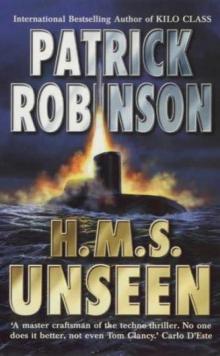 H.M.S. Unseen am-3
H.M.S. Unseen am-3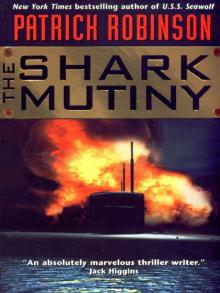 The Shark Mutiny (2001)
The Shark Mutiny (2001)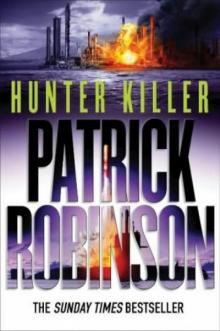 Hunter Killer am-8
Hunter Killer am-8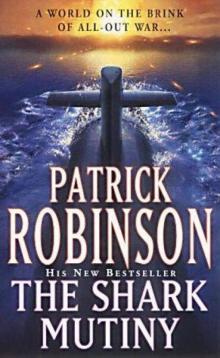 The Shark Mutiny am-5
The Shark Mutiny am-5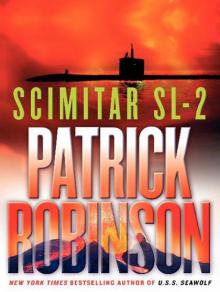 Scimitar SL-2
Scimitar SL-2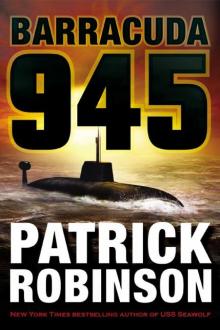 Barracuda 945 am-6
Barracuda 945 am-6 Hunter Killer
Hunter Killer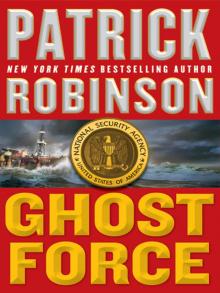 Ghost Force
Ghost Force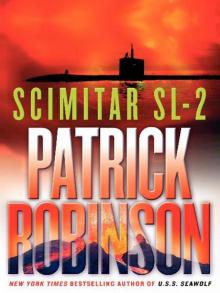 Scimitar SL-2 (2004)
Scimitar SL-2 (2004)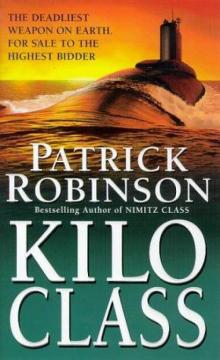 Kilo Class am-2
Kilo Class am-2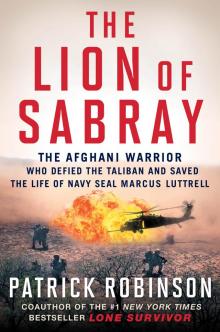 The Lion of Sabray
The Lion of Sabray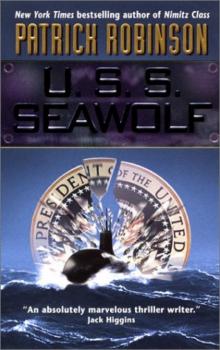 U.S.S. Seawolf am-4
U.S.S. Seawolf am-4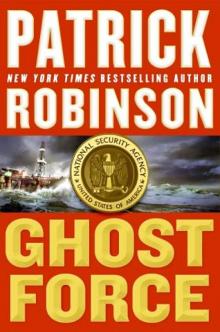 Ghost Force am-9
Ghost Force am-9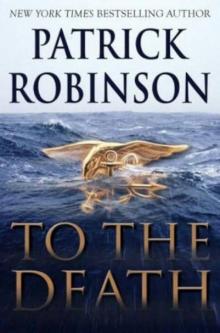 To the Death am-10
To the Death am-10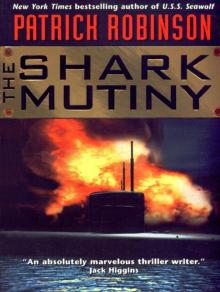 The Shark Mutiny
The Shark Mutiny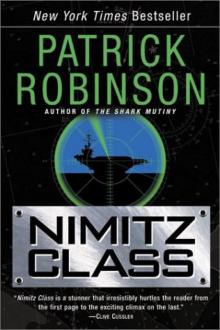 Nimitz Class am-1
Nimitz Class am-1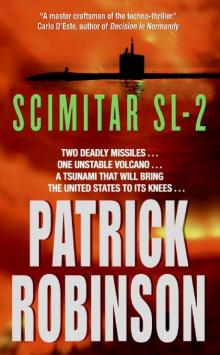 Scimitar SL-2 am-7
Scimitar SL-2 am-7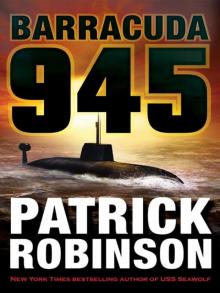 Barracuda 945
Barracuda 945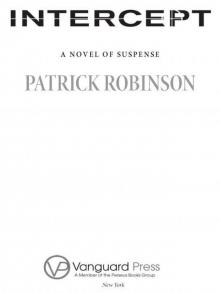 Intercept
Intercept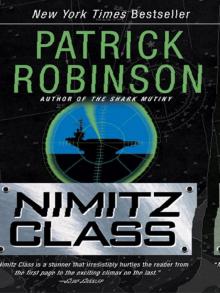 Nimitz Class (1997)
Nimitz Class (1997) Kilo Class
Kilo Class Kilo Class (1998)
Kilo Class (1998) Diamondhead
Diamondhead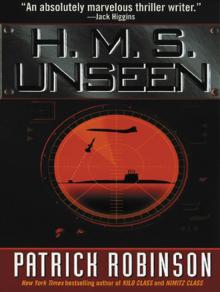 H.M.S. Unseen
H.M.S. Unseen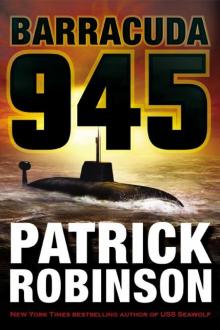 Barracuda 945 (2003)
Barracuda 945 (2003)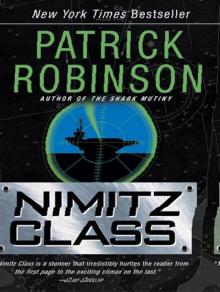 Nimitz Class
Nimitz Class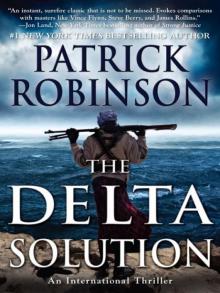 The Delta Solution
The Delta Solution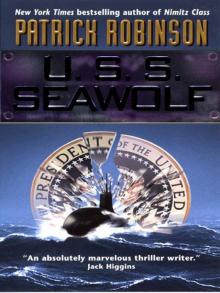 U.S.S. Seawolf
U.S.S. Seawolf